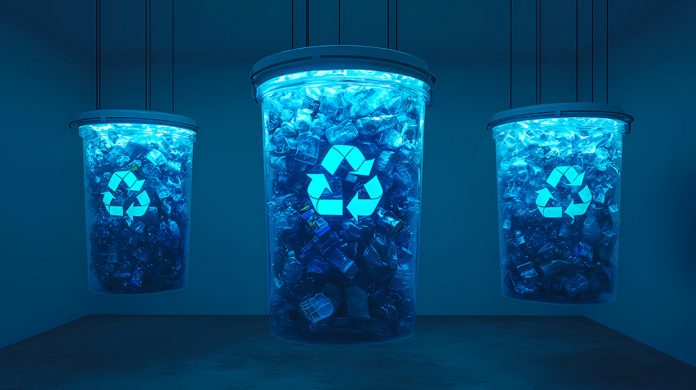There aren’t many industries as essential – or old – as waste management. And while the sector has evolved significantly with modern technologies and regulatory frameworks, it still faces challenges, particularly in managing its corporate reputation. Dean Enon, Catalyst PR, explores why communications strategies are just as vital as logistics.
Waste under scrutiny
Every household, business, and public body generates waste, and dealing with it properly is a national concern. The ongoing industrial disputes in Birmingham – which could drag on until December – highlight this.
In recent years, the spotlight has intensified, not just on how waste is collected and disposed of, but on its environmental, social, and economic footprint.
DEFRA’s recent target that residual waste must not exceed 287kg per person by 2042 (a 50% reduction from 2019 levels) is a signal of intent. The waste sector is no longer just about clearing up mess; it’s about being seen to lead on sustainability, circular economy initiatives, and carbon reduction.
Further legislation – such as extended producer responsibility (EPR) which holds manufacturers accountable for waste products, encouraging a focus on decreasing excess waste materials, deposit return schemes (DRS), and consistent collections reforms – reinforce that transparency, traceability and trust are more necessary than ever.
Reputational challenges are everywhere
Despite the industry’s critical role, waste has historically battled negative perceptions, from accusations of fly-tipping, poor recycling rates, and mismanaged landfill, to unscrupulous operators involved in illegal dumping or misreporting tonnages. This doesn’t help build or maintain a reputation that’s had its knocks over the years, and a handful of negative cases can tarnish the whole sector’s reputation.
Media exposés showing plastic waste shipped overseas (resulting in fines of £870,000) or reports of litter ending up in rivers contribute to a picture of negligence. And in this age of social media, isolated incidents can go viral, damaging brand trust and stakeholder confidence.
Professionalising the public face of waste
Many businesses in the waste sector have deep operational expertise, with teams laser-focused on compliance, efficiency, and logistics. But these strengths need to be matched by professional communications, and there are many examples of this happening. Reputation is no longer built solely on performance – it requires visibility, clarity, and proactive engagement with the public, policymakers, clients, and communities.
The most forward-thinking waste companies are taking ownership of this. They’re celebrating their carbon savings and sharing stories that humanise their workforce. They are also investing in employee engagement, living wage policies, and diversity to reflect the values of the communities they serve.
Likewise, technological advancements are helping forward-thinking initiatives, such as smart bins using AI to identify and categorise waste and distinguish between landfill and recyclable waste.
Other sectors are doing their bit too, with the circular economy adopted by many in the fashion industry; particularly as Gen Z and Millennial consumers are looking at a product’s journey and sustainability, and aligning to brands with a similar ethos to them.
Collaboration is key to credibility
Like many, the waste industry is also adopting collaboration. Industry groups such as CIWM, ESA, and WRAP are already encouraging standards and best practices, but real reputational change happens when organisations embrace this collectively.
This means aligning corporate communications with sector-wide campaigns, ensuring consistent messaging on environmental goals, and being honest about real-life challenges.
Preparation prevents reputational pain
Waste businesses should treat their communication plans with the same rigour as their compliance procedures to meet challenges head on. That means:
Having a designated crisis communications team (CMT) and clear escalation procedures
Training spokespeople to deal with media enquiries or public scrutiny
Running regular scenario planning exercises, or “reputational fire drills” to test readiness
A CMT is critical in ensuring crises are met with readiness, that key messages are agreed, and information is disseminated to the right people, at the right time. For instance, if a recycling facility has a fire, if a waste collection route is disrupted, or if an accusation arises, the speed and clarity of the response will define the reputational outcome.
The best reputations aren’t built by hiding issues, they’re built by addressing them head-on. In an era where the public expects instant access to information, openness and accountability are the foundations for trust. Waste companies that are honest about where materials go, how they’re processed, and what improvements are being made will always win more respect than those who stay silent or evasive.
Social media, newsletters, town hall events, ESG reports, and customer updates can all help build that bridge between business and stakeholder.
There’s an opportunity now for the waste sector to shift public perception. No longer seen as the ‘dirty’ side of the economy, it can become a central pillar in the UK’s journey to net zero and sustainable resource use.
By embracing professionalism, transparency, and strategic communications, waste management companies can not only protect their own reputations but elevate the whole industry.
Yes, where there’s muck there’s brass. But for businesses that manage their reputation wisely, there’s also credibility, trust, and long-term commercial resilience.




